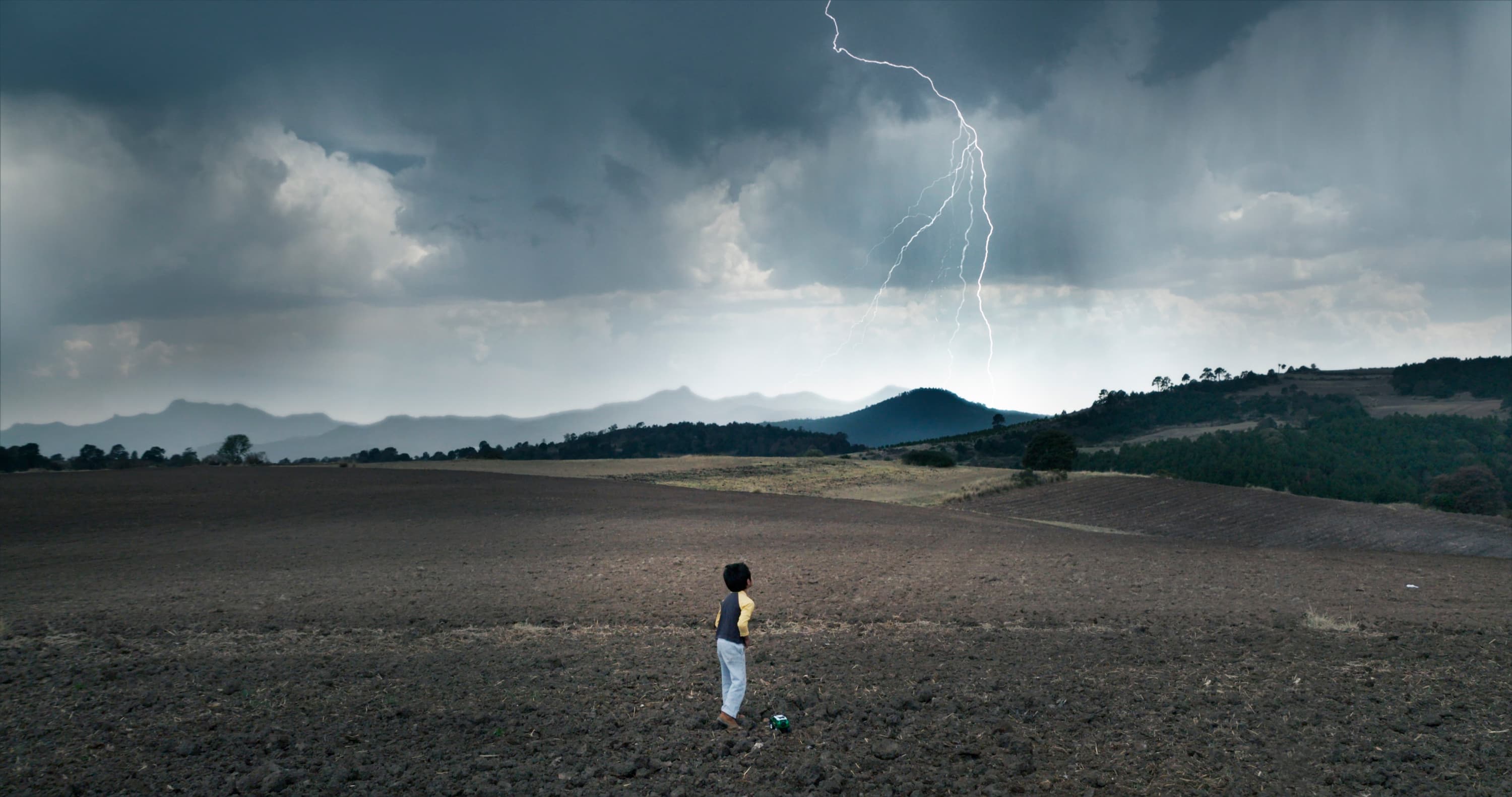
Tatiana Huezo on the fleetingness of youth in The Echo
A film talk with director Tatiana Huezo took place on November 10 during IDFA 2023.
In her IDFA Bertha Fund-supported film The Echo, celebrated filmmaker Tatiana Huezo Sánchez evidences documentary filmmaking to be a delicate craft that draws equally on artistic vision, holding space, and knowing how to observe. The Echo lenses rural Mexico, conjuring up a quiet portrait of a village nestled deep in the country’s northern highlands.
"I found El Eco because I knew that I wanted to make a film with children, with youths, to immerse myself in that period of life and try to catch its purity and innocence," the director notes. The remote village in Puebla proved a poignant location—as a place where childhood often straddles two worlds, oscillating between the vivaciousness of a tender age and the solemn responsibility that comes too early for the local children, who take up chores, care for their elders, and tend to the livestock.
The creation of such a nuanced portrait was moored in the filmmaker's willingness to stay with its residents for lengthy periods of time, allowing space to observe and to listen. Huezo visited the remote hillside community over a span of four years to research the film, followed by some 18 months of filming. It was in this period that her bond with the people of El Eco transpired. Huezo ultimately focused on three families in the film, and as her rapport with them matured, she witnessed the minute details of their routines, largely dictated by tradition and the temperament of nature. Eschewing interviews or narrative voice-overs, Huezo allowed for her watchful camera, helmed by her long-time collaborator Ernesto Pardo, to capture the hum of everyday life while gently illuminating the grandeur of nature and the elemental hardships it entails for the women and children of El Eco.
The film opens in the pitch darkness, with an array of sounds slowly revealing a space colored by various audial impressions: the snorting of a horse, the barking of a dog, and the bleating of a sheep, among others. As critic Nicolas Rapold aptly pointed out during the talk with the director at IDFA 2023, you hear so much that you can almost see the space before the images come up.
"The sound design was done by Lena Esquenazi, with whom I have collaborated for some 20 years," Huezo says. "In that sequence, we thought that every animal sound was important to the story. First you hear the dog, and the dog chases the horse, and the horse chases the sheep, everybody starts running around. These were the sounds that we were surrounded with at all times, and it was important to bring them on screen, be it the breathing of the animals or the assorted sounds they produced—to humanize the animals that were so close to the people and use the sound as a sort of character."
The rich sound design helped the filmmaker layer the environment in detail, creating a sonic palette that furthers a sense of being engrossed in the place. Taking inspiration from the forest soundscape itself, Huezo intricately sampled and rebuilt the plurality of different textures and materials that seemed to surround her when she closed her eyes in the woods, from the cracking of tree branches to the sounds of swings, doors, or metal.
Faithful to her interest in placing the women and children at the heart of her films, Huezo has created a piece of cinema that is understated in its tone yet immensely impactful in portraying the grace of those who often bear the brunt of hardship and violence in rural Mexico. Poetic sequences of children at play, chasing shadows and running through the lush fields, are threaded together with dimly lit interior scenes, often sparse with dialogue, of the youths engaging in chores, further throwing into relief the fleetingness of childhood. In that, Huezo's camera also observes the moments of delight that pierce through the remote village of Mexico, as echoes of hardship continue to reverberate in silence.
